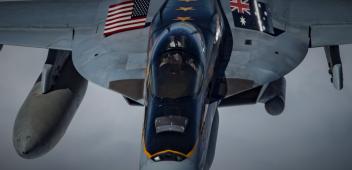We spend so little on ambassadors but they're more important than ever
Foreign Minister Julie Bishop should not be harangued for bringing together all of Australia's heads of mission for the first time, writes Alex Oliver for the Sydney Morning Herald on 2 March.

Foreign Affairs Minister Julie Bishop and her Department of Foreign Affairs and Trade have made headlines this week, with backhanded compliments for 'saving' taxpayers' funds by calling a meeting of all Australia's ambassadors, high commissioners and consuls-general in Australia, rather than holding lavish talkfests overseas.
But this is what the message should have been: the minister and her department are about to hold an historic meeting of the country's best diplomatic minds. At this meeting, these heads of mission – Australia's ambassadors, high commissioners and consuls-general overseas – will attempt to devise a durable strategy for Australia's future international engagement at one of the most unpredictable and possibly transformational moments of our modern era. It is in our interest that they succeed.
The strategy they are working on is the foreign policy white paper, due to be delivered later this year. Unlike the defence department, which has had seven such strategic documents or 'white papers' in the past 40 years, this will be only the third foreign policy white paper in Australia's history. The other two were produced by the Howard government in 1997 and 2003, and there's been deathly silence since.
It might have been acceptable to take such an apathetic approach to Australia's future during a period of uninterrupted economic growth, ever-increasing prosperity, and relative peace and security. In 2017, we cannot take such prosperity and security for granted.
The election of US President Donald Trump is just one indication, albeit a sharply pointed one, that the world Australia has known and thrived in for the past 50 years is not as it seemed. The Brexit decision was another such indication. Voters in western developed nations like ours appear to be having second thoughts about globalisation, free trade, free movement of people around the world, collective action on global threats such as climate change, preparedness to accept refugees, multiculturalism, and possibly even the benefits of democracy. Those who have not shared equally in the spoils of globalisation are questioning the value of the global order as we have known it.
At the same time, the nation finds itself in the uncomfortable position where our largest trading partner is not our security ally. The momentum of economic growth is towards our region, but the principal engine of that growth, China, has become militarily more assertive. There are indications that the Trump administration intends to scale back its defence presence in the region. No one knows what will happen next.
So in those circumstances, wouldn't it be wise, even imperative, to gather together Australia's most experienced diplomatic hands in one place to devise a strategy which will put Australia in the best possible position to deal with this fast-changing international environment? Why would we quibble about whether it is cheaper for those diplomats to meet once every 18 months in one of six regions in the world (the system before this year), or whether they all meet once a year, in Australia? Why do federal oppositions (of either persuasion) waste hours of taxpayer-funded time in parliamentary hearings grilling department officials about how much was paid for airfares and accommodation to attend long, hard meetings in conference venues at drab business hotels? We spend $32 billion a year on defence, just short of $4 billion on overseas aid, and just $1.6 billion on diplomacy and embassies. A bit of perspective would be nice.
Australians, and the media, are supremely adept at this sort of sniping. It's the 'Kevin 747' phenomenon. As soon as those uppity prime ministers, foreign ministers or diplomats go globetrotting to those pesky international meetings, we cast out the lasso and haul them, chastened, back in. We prefer our experts on international affairs not to do any international travel.
But Australia is an island nation. We are remote not just from our allies and friends in the west: we are at least nine hours' flight from the capitals of our largest and second largest trading partners, China and Japan. We are a nation which survives on exports. To succeed, we need to travel and do business abroad. Diplomats, consuls and trade envoys help clear the path. They have in-depth knowledge about the places where we do business. They are the ones who actually know the people we need to deal with in other countries on our trading relationships, consular assistance, health co-operation, defence, intelligence, immigration, counterterrorism, policing and countless other efforts.
Rather than haranguing the foreign minister and her department for holding a first-ever meeting of all Australia's heads of missions, we should instead be praying. We need them to come up with a strategy for Australia's foreign policy that will keep us all in the manner to which we've become accustomed: safe and secure in a prospering nation.


